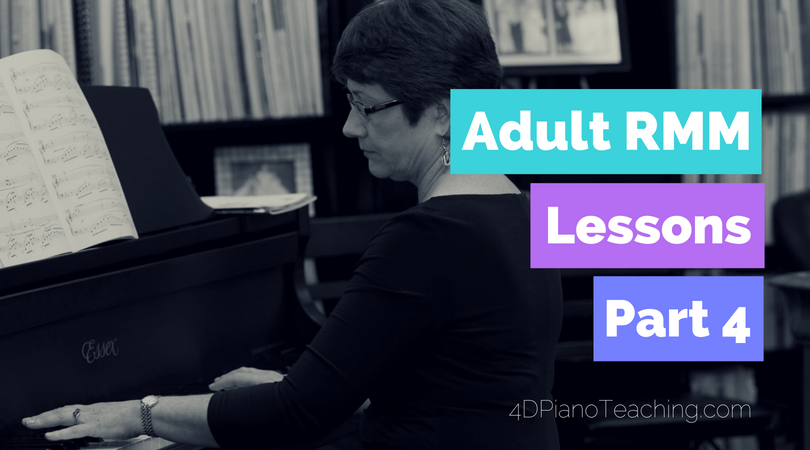(To catch up on this series see Parts 1, 2, and 3)
Last week we heard from adult students about what they see as a successful lesson. Next, I wanted to look at the bigger picture. What are their overall goals in piano? If we are teaching to different goals than our students, we’ll both become frustrated. Here’s what they had to say:
So there’s a general consensus that they want to keep getting better. They want to improve their playing level. I think teachers often have the idea that adults don’t want to improve, they are happy as they are without corrections, but here’s evidence to show that’s not true! They want to improve, but they have to be given manageable steps to improve. The students also mentioned personal enjoyment and mental health, which are both huge for adults!
Also, remember how Joe said there were a couple pieces he wanted to play for his wife? Many adults with come into lessons with a specific piece or pieces as “goal pieces” that they want to learn. Make sure you ask about this and have a plan for how they will accomplish that. According to Malcolm Knowles, author of The Adult Learner, four factors contribute to adults’ motivation to learn.
Adults will be more motivated to learn when they:
- Have a sense of choice in what they are learning
- Value what they are learning
- Enjoy the learning process
- Feel successful in the learning process
Allowing adults to choose the pieces or genres they want to study gives a sense of volition and value to what they are learning and also increases the odds that they will enjoy it. Most adults come in to lessons with a personal motivation to learn, unlike kids who may be put into lessons for a variety of reasons. We spend so much time trying to figure out how to motivate our younger students to learn, but with adults we are a step ahead here. They wouldn’t come to piano lessons if they weren’t motivated to learn! Our job is simply to figure out what they’re motivations are and show them how to reach their goals.
I have a college student who recently started taking lessons with me. When I asked him why he was taking piano and he told me he wanted to play at his wedding. I followed up and asked “when is the wedding?” thinking I’d have a deadline for teaching him a piece to perform, but turns out he doesn’t even have a girlfriend, just planning ahead for the future! 🙂
Next week, we’ll take a look at the social aspect of piano lessons.
Author: Spring
Spring Seals, NCTM, teaches 60 piano students ranging from age 3 to 70 in Fort Worth, Texas. She also serves as the Director of Certification for TMTA. She is passionate about helping teachers become more effective in their studios through professional development, new resources, and fresh ideas.

